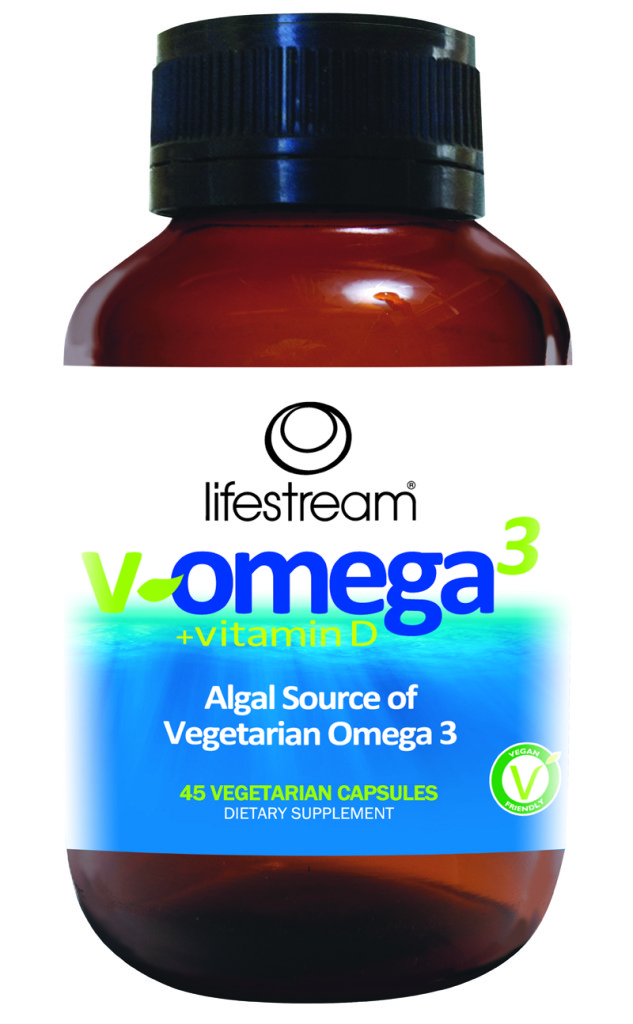With global consumer spending on Omega 3 products expected to reach $34.7 billion in 2016*, our appetite for good fats and their benefits is only gaining momentum.
Yet, such demand also puts strain on our oceans and ecology, prompting conscious consumers and supplement producers to look for more sustainable and cleaner options. The trend is moving beyond fish and is focused on utilising nutrient-rich microalgae for the widely researched brain-boosting EPA and DHA omega 3 fatty acids.
The Latest—and More Pure—Trend in Brain Food
Did you know? Fish don’t actually produce Omega 3 fatty acids, but accumulate them by consuming microalgae, or eating other fish that have accumulated the Omega 3 fatty acids.
So, why are we eating the middleman when we can get these health benefits directly from the pure source?
Conscious companies such as Lifestream, manufacturers of clean, sustainable superfoods and supplements including their popular spirulina and aloe vera lines, have answered the rising demand with their V-Omega 3 capsules, derived directly from sustainable microalgae, which is also free from impurities and contaminants such as mercury.
“I’m optimistic that algae will match fish oil in time as awareness grows and more people switch,” says Lifestream naturopath Shelley Atkin. “Research in Europe is clearly showing consumers there are looking for cleaner, as well as vegetarian sources of high strength Omega 3, particularly of DHA for brain health and development.”
There are many plant sources, such as microalgae, that contain as much Omega 3 in the right forms that can be used immediately in the body.
A 2012 survey from the Discovery Research Group showed almost four out of 10 consumers who want to take an Omega 3 supplement are looking for a fish oil alternative**. “Fish is what we know, what we cook with and have consumed for centuries—so it became the natural choice for supplements to boost our Omega 3 intake for increased health benefits,” Atkin says. “But hopefully this new learning about algal omegas will make sense to more consumers and we can go straight to the source, minimising impact on our oceans.”
Ethical nutritionist, naturopath and chef Janella Purcell agrees, and says there are healthier, more sustainable ways to get the recommended dose of healthy fats.
“I don’t recommend fish sources as a way of including Omega 3 fatty acids in your diet—our oceans just can’t support this practice,” Purcell says. “There are many plant sources, such as microalgae, that contain as much Omega 3 in the right forms that can be used immediately in the body.”
“Unlike fish oil supplements, vegetarian omega sources such as V-Omega 3 don’t leave a telltale aftertaste or breath, upset the stomach, cause loose stools or nausea. It’s also a safer option during pregnancy due to not containing mercury and other nasties.”
Taken regularly, Omega 3 supplements may help improve brain function, mental clarity and focus, while benefiting cardiovascular and joint health and mobility. They may also help foster healthy bones and encourage calcium absorption.
Purcell says she regularly recommends Lifestream V-Omega 3 to her clinic patients due to its potency, purity and sustainability.
#cleaneats #sustainable #omega3 #vegan #healthtip #lifestreamsuperfoods ___________________________________________________________________________
Media contact: Shannon Dunn, Communeco shannon@communeco.com (03) 9028 2229
MEDIA NOTES:
• Interviews with naturopath Shelley Atkin and nutritionist Janella Purcell are available on request.
• If using information from this news release, please ensure source reference remains included.
* http://www.marketresearch.com/Packaged-Facts-v768/Global-EPA-DHA-Omega-Products-7145087/
** http://www.nutraceuticalsworld.com/contents/view_breaking-news/2012-03-20/omega-3-users-looking-for-fish-oil-alternative/#sthash.clljplPf.dpuf
Lifestream V-Omega 3, 45 capsules $44.95. Available from health food stores and pharmacies nationwide or online at Planet Health.

